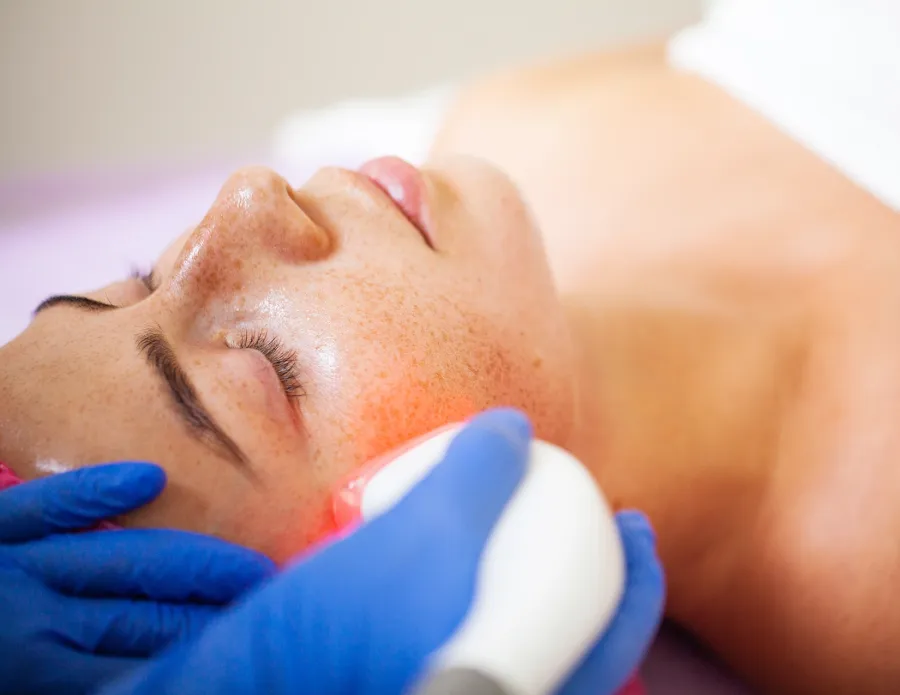Intense Pulsed Light (IPL)
Intense Pulsed Light (IPL)
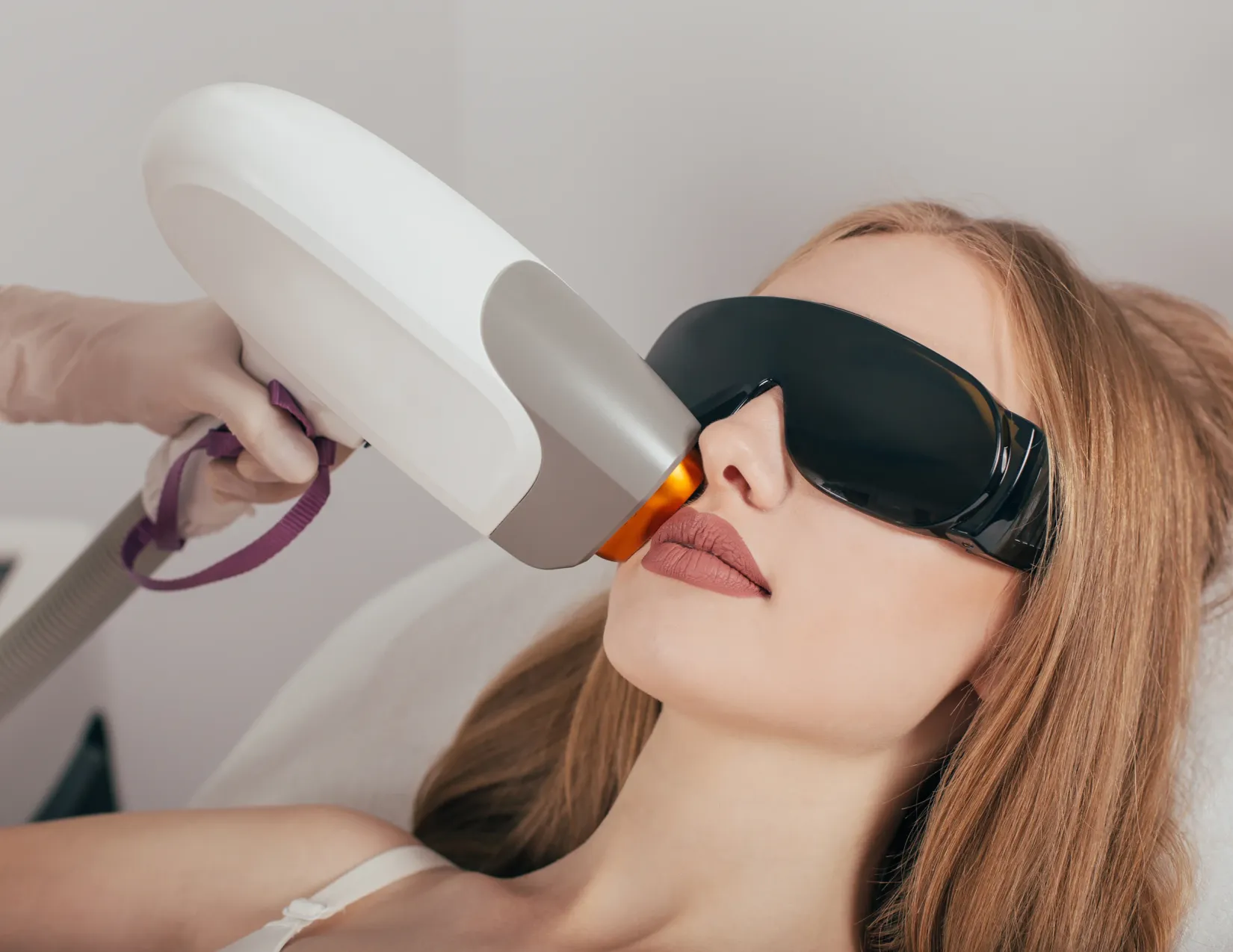
Permanent Hair Reduction
Transform your hair removal routine with IPL Permanent Hair Reduction.
This advanced technology targets hair follicles with precision, offering a sustainable solution for silky, hair-free skin.
IPL treatments for hair reduction provide a long-term solution to unwanted hair growth.
By targeting the hair follicles, it disrupts their growth cycle, leading to smoother skin over time.
The treatment is efficient, versatile, and eliminates the need for frequent shaving or waxing, saving you time and effort.
IPL Permanent Hair Reduction is ideal for those seeking an effective and long-lasting alternative to traditional hair removal methods.
It works best for individuals with lighter skin tones and darker hair, as the light energy targets melanin in the hair follicle.
During the session, the treatment area is cleansed, and a cooling gel is applied to enhance comfort.
The IPL device emits controlled light pulses that penetrate the skin to target the hair follicles.
The procedure typically lasts 10–45 minutes, depending on the area treated.
For optimal results, multiple sessions are scheduled 4–6 weeks apart to match the hair growth cycle
Options
-
Face:10 - 30 Minutes
-
Arms:15-45 Minutes
-
Body:10-30 Minutes
-
Feet & Toes:10 Minutes
-
Leg:30-45 Minutes
-
Bikini Line :20-30 Minutes
-
Full Brazilian:30 Minutes
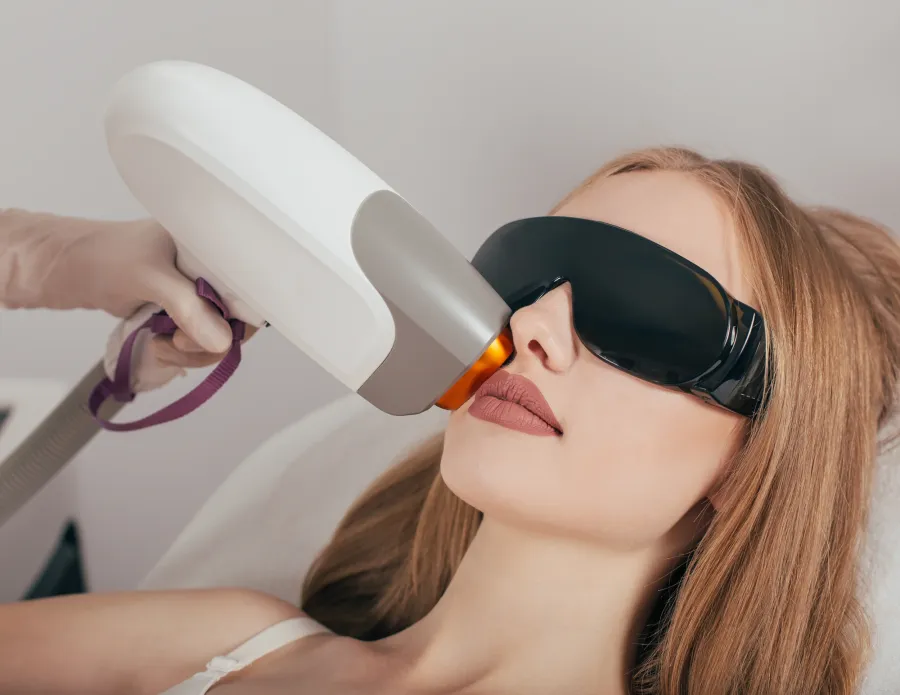
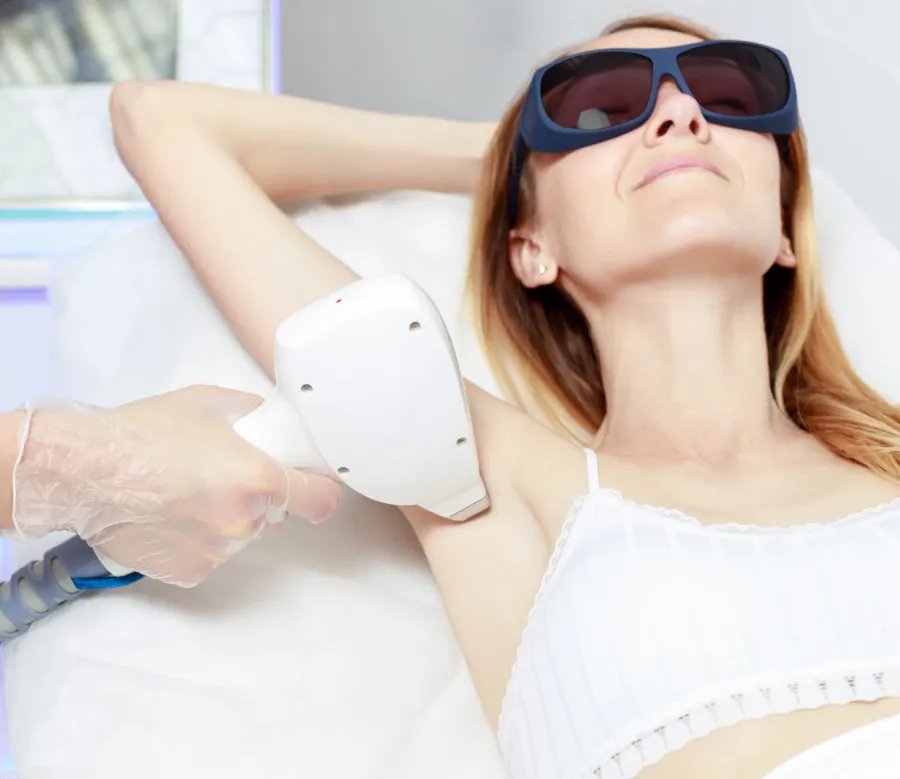

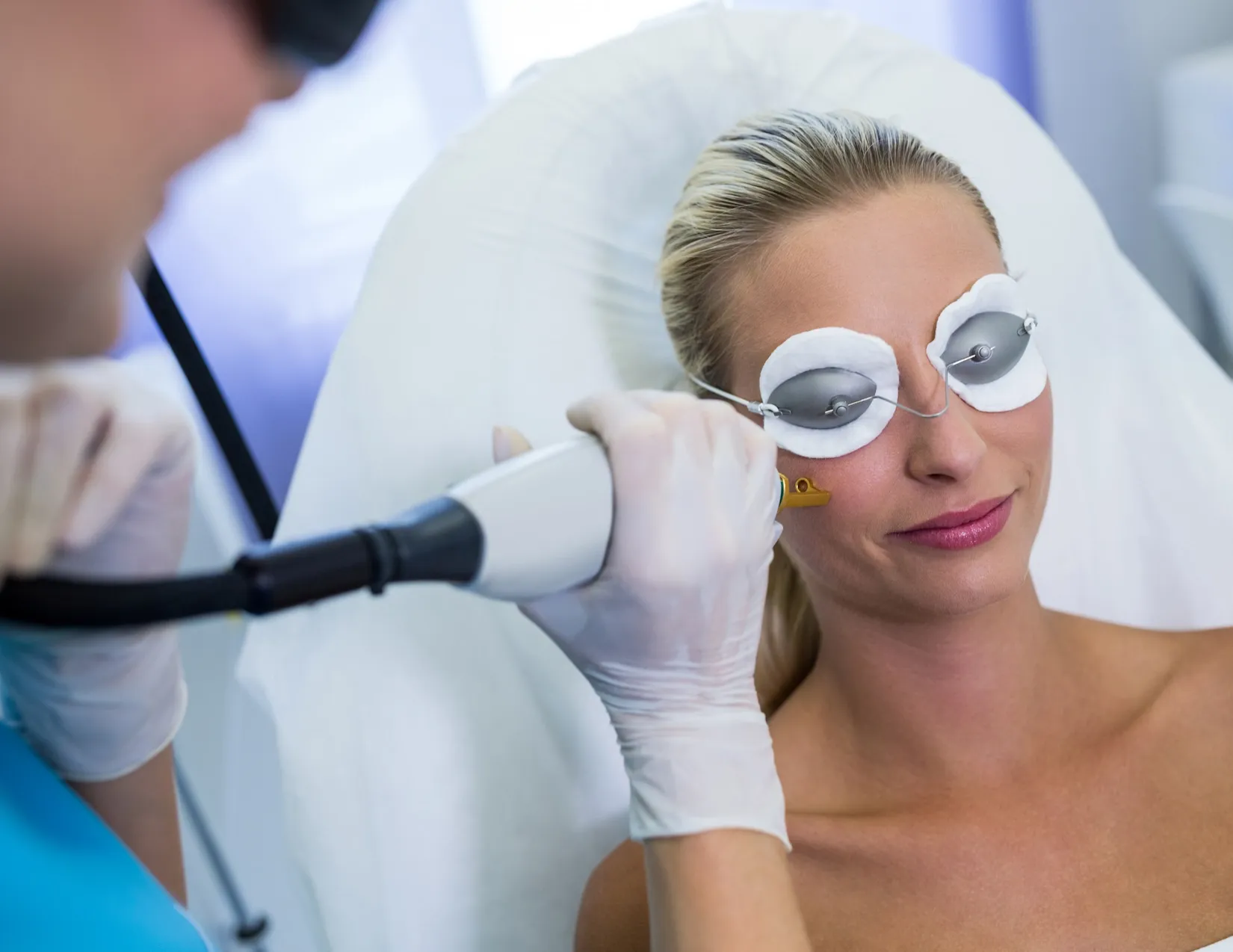
Capillaries and Vessel Reduction
Reduce redness and visible veins with IPL Capillary and Vessel Reduction, a targeted treatment designed to restore balance and harmony to your skin tone.
This treatment is designed to diminish the appearance of broken capillaries and vascular irregularities.
By selectively targeting these areas, IPL promotes clearer, more even-toned skin.
It also provides relief for conditions like rosacea, reducing redness and irritation.
This treatment is best suited for those experiencing redness, visible blood vessels, or rosacea symptoms.
It is most effective for lighter skin tones, where vascular issues tend to be more noticeable.
A cooling gel is applied to the affected area before the IPL device delivers targeted light pulses.
The heat generated by the light causes the blood vessels to coagulate and eventually fade as the body reabsorbs them.
Treatments typically last about 30 minutes, and significant improvements can be seen after 1–3 sessions
Options
-
Treatments:15-30 Minutes
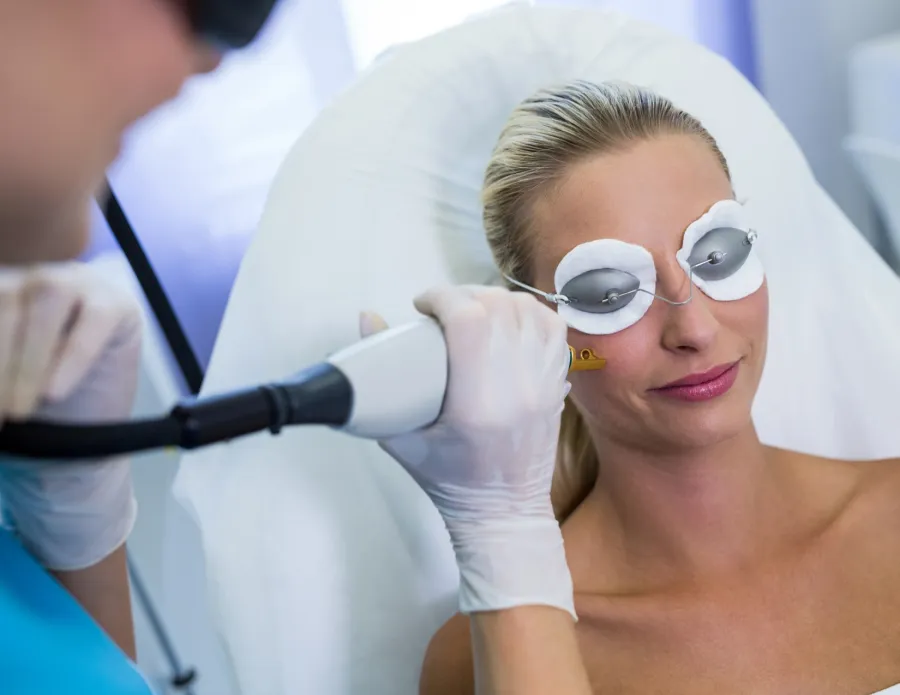
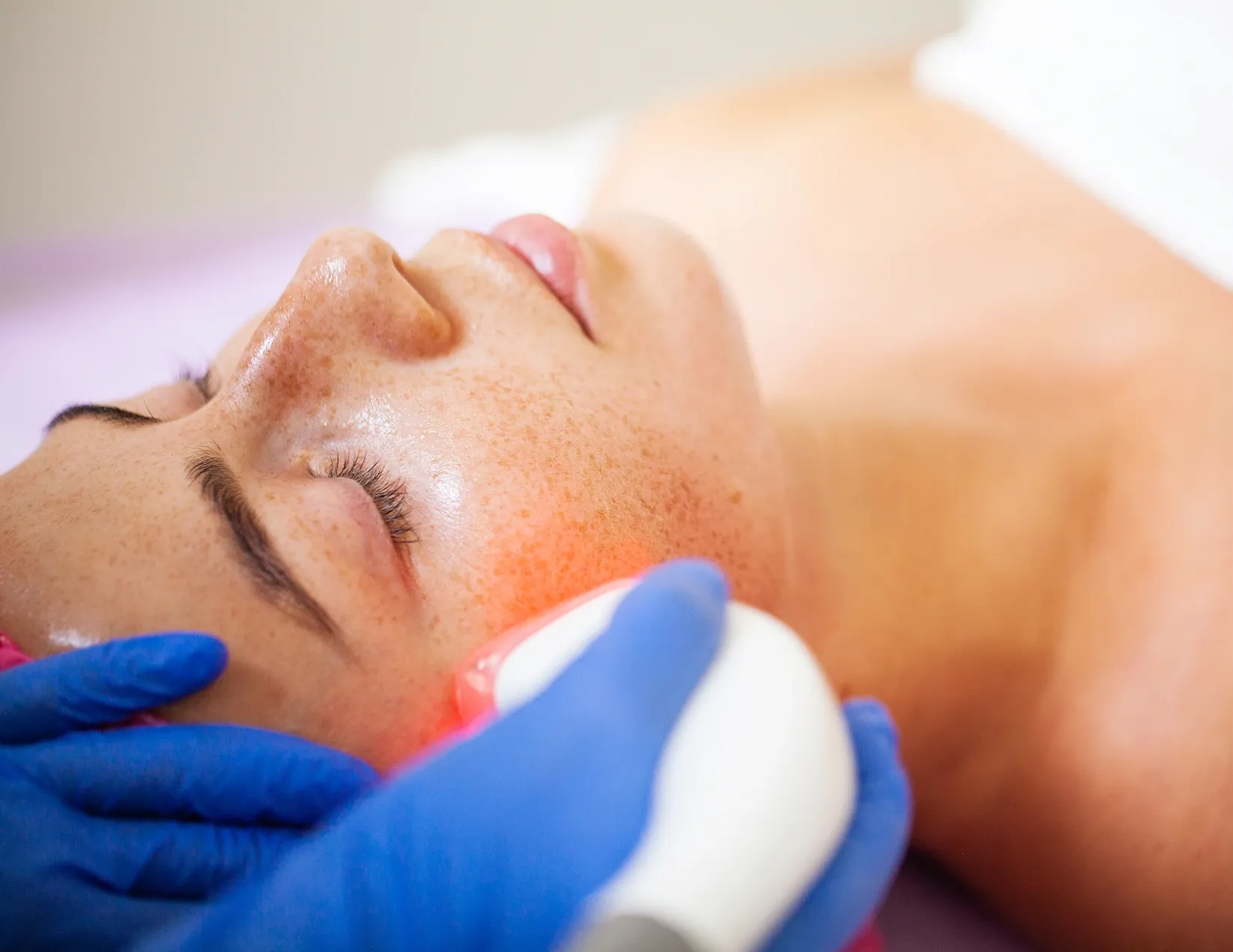
Photo-facial
Rejuvenate your skin with IPL Photo-facials, a non-invasive treatment that combats signs of ageing, sun damage, and pigmentation, revealing a radiant, youthful complexion.
This rejuvenating treatment diminishes the appearance of sunspots, age spots, and hyperpigmentation.
It also stimulates collagen production, which helps to improve skin firmness and elasticity while reducing fine lines.
IPL Photo-facials are highly effective for restoring a healthy, even skin tone.
This treatment is ideal for individuals looking to address sun damage, uneven pigmentation, and early signs of ageing.
It is particularly effective on lighter skin tones prone to these concerns.
The skin is cleansed and prepared with a cooling gel.
The IPL device emits precise light pulses, targeting pigmentation and vascular irregularities.
Each session lasts about 30 minutes, with visible results improving over a course of 3–5 sessions spaced 4 weeks apart
